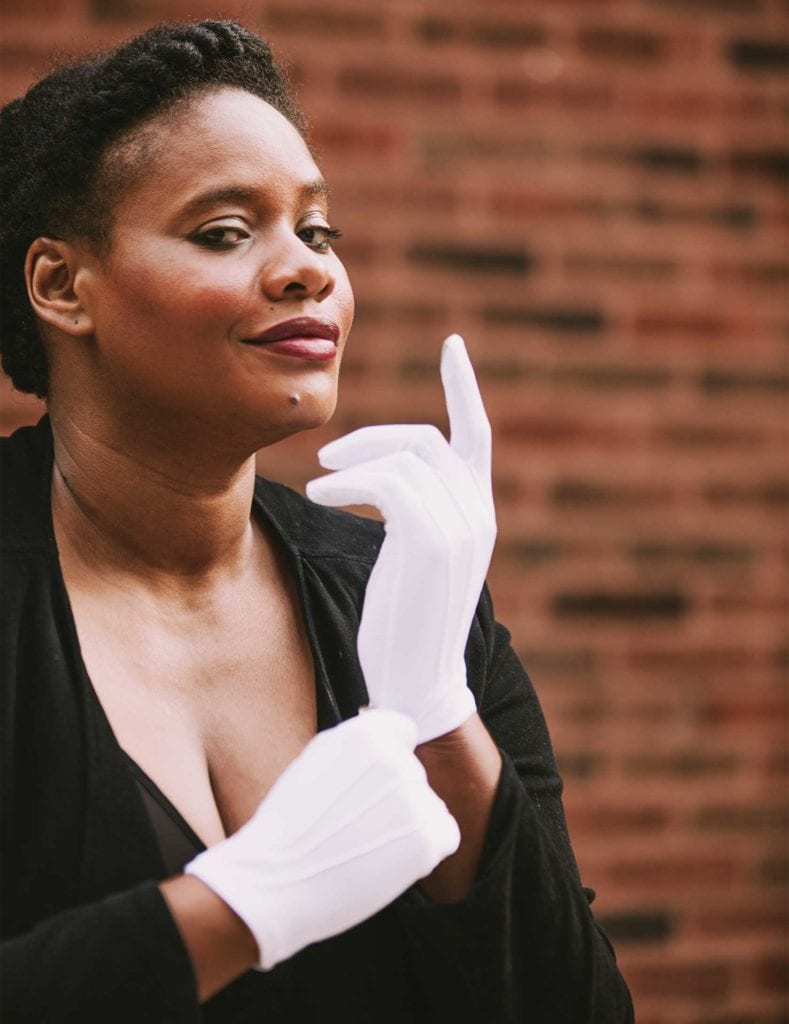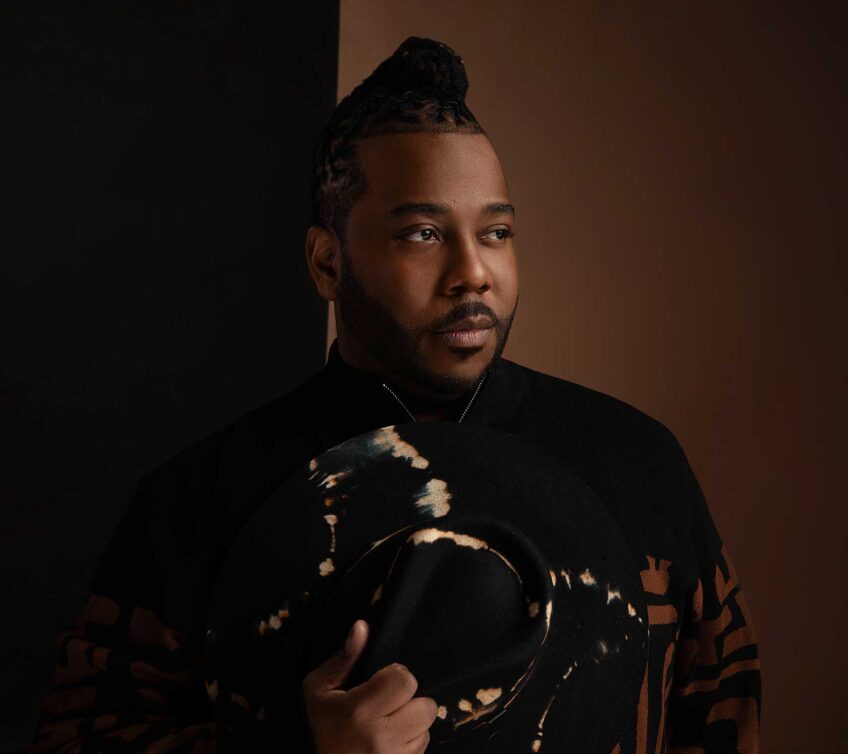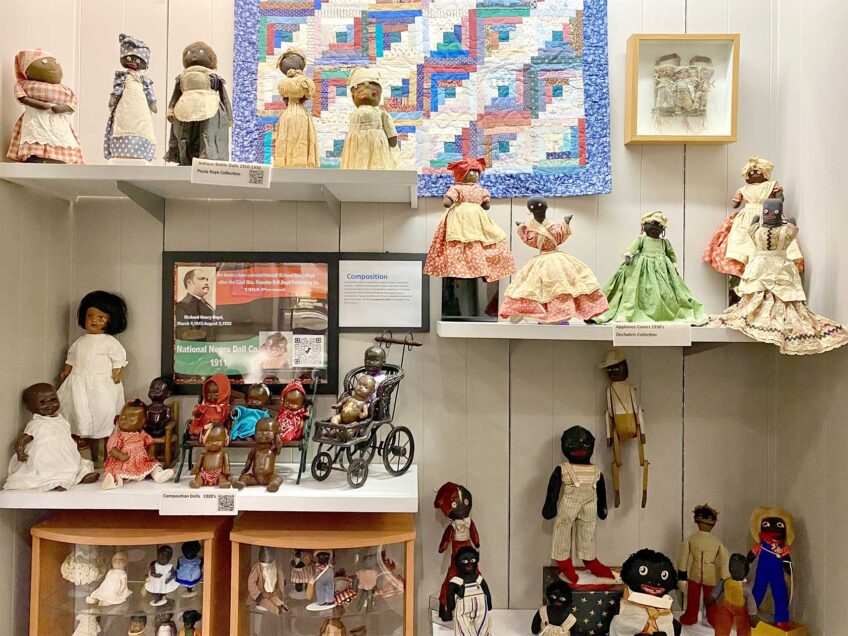Dee Dee Batteast confronts casting stereotypes in her one-woman show

On Thursday Aug. 20, Gloucester Stage presents the Massachusetts debut of “No AIDS, No Maids: Stories I Can’t F*ckin’ Hear No More,” a one-woman show written, directed and performed by Dee Dee Batteast. Streaming online, the newly conceived virtual version of the show explores American theater’s two-dimensional stereotypes for actors of color and LGBTQ actors.
Batteast created the show in 2015 when her students at Ball State University, where she teaches theater, were experiencing the same limited role selection that she had dealt with in her own student days. “As progressive as we like to think of ourselves in the theater, the theater itself moves really slow,” says Batteast. “The stories that we get attached to and start telling, and the canon of American theater, is still very white, very straight, and there’s several groups that are misrepresented or underrepresented.”
“No AIDS, No Maids” specifically focuses on Black women and gay men. Black women are often cast as a mammy trope or an angry or sassy Black woman stereotype, while gay men are repeatedly required to play characters dealing with AIDS. Both suffer from the “fun best friend” casting as well. In the show, Batteast chats openly with the audience to illustrate why it’s important to be aware of the media we consume and the stereotypes perpetuated.
Originally performed cabaret-style, the show has been adapted significantly for its new form as a video presentation. “It’s actually a completely different piece. We’ve made a teleplay,” says Batteast. “Moving the entire piece to a filmed platform, there was a lot of consideration to how can we honor that new medium that is film and television and let that inform the piece.”
She describes it as a Mr. Rogers-style discussion with love about these media representation issues. Batteast infuses the topics with humor to create a welcoming environment for conversation and growth. The film style even has a PBS aesthetic meant to be comforting and familiar to the viewers. The live theater show always had a talkback element that’s currently missing from the virtual version. Batteast says she’s working with Gloucester Stage to remedy that, because conversation is key to the kind of growth the performance describes.
“I want the audience to walk away energized to have this conversation,” she says. “I just want you to be a little more aware of what you’re watching.”
Pre-registration on the Gloucester Stage website is required to receive a performance link that is valid for 24 hours of viewing. The performance is free to watch, but donations to the artists involved are encouraged.


![Banner [Virtual] Art Gallery](https://baystatebanner.com/wp-content/uploads/2024/04/Cagen-Luse_Men-at-store-e1713991226112-150x150.jpg)

![Banner [Virtual] Art Gallery](https://baystatebanner.com/wp-content/uploads/2024/04/Cagen-Luse_Men-at-store-e1713991226112-848x569.jpg)

